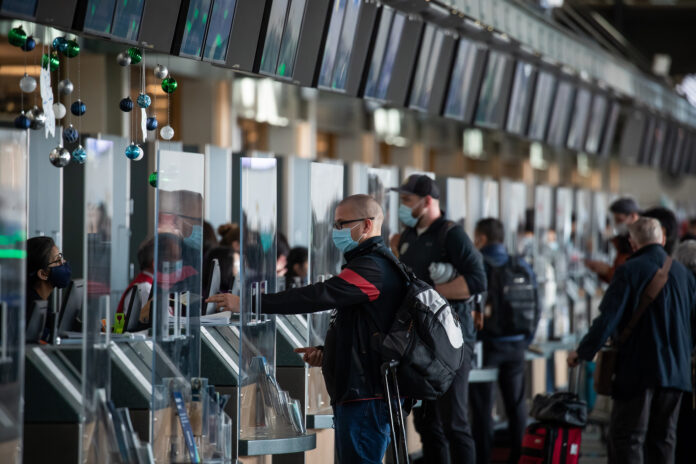He added the pre-arrival test must be taken in a country other than Canada for travellers visiting the nation.
Only last month, the federal government announced it was dropping the negative test requirement for fully vaccinated Canadians returning home from short international trips.
Fully vaccinated Canadians returning from trips longer than 72 hours were required to show proof of a negative PCR test upon return.
Canada’s testing rules for travel indicate travellers must show a negative COVID-19 test result taken within 72 hours of their scheduled flight or arrival at the border, or proof of a previous positive test result taken between 14 and 180 days before travel.
Story continues below advertisement
Dr. Theresa Tam, chief public health officer of Canada, told reporters PCR testing needed to be reinstated as the Omicron variant spreads worldwide.
Trending Stories
5 children dead after ‘horrific’ bouncy castle incident in Australia
Ontario reports 3,124 new COVID cases as daily counts continue to surge
“If you went to the United States and you catch COVID-19, it does take a bit of time for incubation to occur,” she said.
“It may not catch everyone, but… we are still using a method of mandatory random testing to potentially detect others.”
In addition to the PCR reinstatement, Duclos announced Canada is dropping the travel bans imposed on 10 African nations, which were introduced last month to help limit the spread of the variant.
Omicron has since been found to be spreading in Canada through community transmission, Tam said Friday. So far, close to 350 confirmed cases have been reported in 11 provinces and territories.
Story continues below advertisement
Starting Saturday at 11:59 p.m., the bans impacting travellers from Nigeria, Malawi, Egypt, South Africa, Mozambique, Namibia, Zimbabwe, Botswana, Lesotho and Eswatini will be lifted.
“While we recognize the controversial nature of such a prohibition, we believe it was a necessary measure to slow the arrival of Omicron in Canada and buy us some time,” Duclos said.
“Given the current situation, this measure has served its purpose and is no longer needed.”
Efforts to limit spread of Omicron over holiday season in Ontario
As Omicron spreads in Canada, officials have been introducing measures to slow it down. The Public Health Agency of Canada projected if Omicron becomes the dominant strain of the virus in the country, cases will skyrocket by the new year.
Story continues below advertisement
Ontario logged 3,124 new cases on Friday. while Quebec logged 3,768 new cases, the highest record ever in a single day in the province.
In the past week, Canada has seen 35,000 new cases of COVID-19. Throughout the country, there are 43,909 active infections, federal data indicates.
Canada’s vaccination rate currently sits at 76 per cent among the entire population, but with the potential for Omicron to make current vaccines less effective, officials across Canada are pushing for those eligible to get a booster shot to increase protection.
But according to Ontario COVID-19 modellers, boosters alone won’t be able to blunt the impact of Omicron. Experts are calling for community contacts to be significantly reduced, or else the province’s ICU capacity could be severely strained by early January.
© 2021 Global News, a division of Corus Entertainment Inc.



